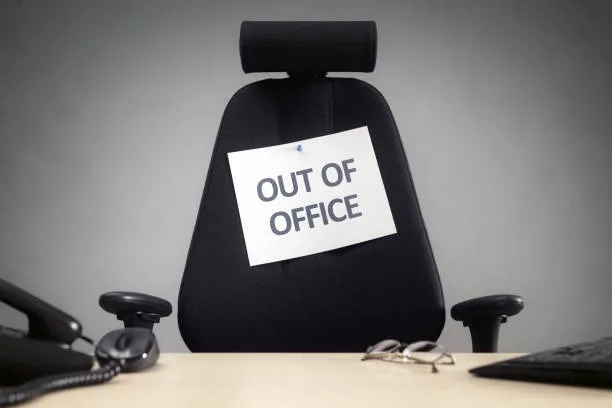Flexibility at work has become a necessity rather than a privilege. In California, employees have a unique legal benefit called Make Up Time—a concept that allows workers to adjust schedules without losing pay or dipping into vacation hours. It was designed to give employees control over how they balance personal and professional responsibilities.
Think of it this way: life doesn’t always follow a predictable script. There will be times when you need to step away from work to take care of personal matters.
California law recognizes this and provides a way to maintain your income without penalties. But what exactly does this mean, and why is it so important? Let’s break it down step by step with this Freeburg & Granieri guide.

California labor laws are unique. Unlike most states, California Labor Code Section 513 offers Make Up Time as a way for employees to shift their hours around without triggering overtime pay. For example, if you need to leave work early on Monday to attend a doctor’s appointment, you can “make up” those hours later in the week—without losing wages or using PTO.
This law is designed to benefit both employees and employers. Employees can handle their personal needs without financial setbacks, while employers maintain productivity and avoid unnecessary scheduling headaches.
At its core, Make Up Time is about flexibility. It allows employees to substitute missed work hours on another day within the same workweek. The purpose is simple: keep your paycheck whole while accommodating personal obligations.
This is not the same as unpaid leave or dipping into vacation days. Instead, it’s a way for workers to rearrange their time while still meeting weekly hour requirements. In a sense, it’s like shifting puzzle pieces to make sure the picture remains complete.
California stands apart from most states in its labor protections. The Make Up Time rule is a perfect example. Many states do not provide this level of flexibility, but California’s Labor Code is designed to ensure workers are not forced into unfair choices between income and personal responsibilities.
These laws also serve as a safeguard against exploitation. By clearly defining what is allowed, California ensures that employees are empowered to make decisions that benefit their lives, not just their employers.
The law defines Make Up Time as an arrangement where an employee voluntarily requests to work extra hours on a different day within the same workweek to offset lost time.
The goal is to provide flexibility without financial loss. Instead of docking wages or requiring PTO, employees can rearrange their hours while still fulfilling their job requirements.
Make Up Time is different from both overtime and flex time. Overtime usually comes at a premium pay rate, while Make Up Time is always paid at the regular rate. Flex time, on the other hand, is a long-term scheduling approach, while Make Up Time deals with short-term changes within a single week.
Generally, non-exempt hourly employees benefit most from Make Up Time. These employees depend on precise hour tracking for wages and need flexibility when life interrupts their schedule.
One key rule is that employees must make the request voluntarily. Employers cannot force workers into Make Up Time arrangements—it must always come from the employee’s side.
If you leave work three hours early on Tuesday, you can add those three hours on Wednesday or Thursday to balance things out.
Employees cannot work more than 11 hours in a single day under a Make Up Time arrangement.
Weekly totals cannot exceed 40 hours. Any hours beyond this are considered overtime, and overtime pay applies.
Employers cannot pressure or coerce employees into Make Up Time. The request must always be voluntary.
Employees are required to submit written requests (often through email or HR forms). This creates a clear record for both sides.
Employers must maintain accurate logs of these requests. This ensures compliance with state laws and helps prevent disputes later.
An employee might leave early on Friday to attend a family event and then come in earlier on Wednesday to make up those hours.
If an employee attends a midweek doctor’s appointment, they could work additional hours later in the week to compensate.
By properly managing Make Up Time within weekly limits, both employees and employers can avoid unnecessary overtime costs.
If an employee exceeds the daily or weekly limits, overtime rules apply, even if the extra hours were part of Make Up Time.
| Scenario | Make Up Time | Overtime |
| Leaving early for child’s school play | Yes | No |
| Employer requires staying late for a project | No | Yes |
| Employee exceeds 40 hours in a week | No | Yes |
Employees can attend personal events without financial setbacks or job stress.
Unexpected events, such as medical needs, do not result in income loss.
Employees save their PTO for vacations or true emergencies instead of using it for minor schedule changes.
Workers feel trusted and supported, which boosts loyalty and job satisfaction.
Less paperwork is needed for time-off requests and payroll adjustments.
When employees are treated fairly, they often respond with higher productivity.
If Make Up Time isn’t tracked properly, unintended overtime violations can occur.
Without proper documentation, employers can face legal disputes and penalties.
Some employers may misuse the flexibility by indirectly pressuring employees.
Violations can result in fines, lawsuits, and other legal penalties for employers.
Employees can file wage and hour claims through the California Labor Commissioner.
Employees may be entitled to back pay, penalties, and reimbursement for legal fees.
Employers should explain Make Up Time rules in employee handbooks and provide training to managers.
Open communication helps employees understand their rights and prevents confusion.
Employers should regularly review policies to ensure they remain compliant with California law.
At Freeburg & Granieri APC, employees and employers in Pasadena, California, receive unmatched civil litigation services.
Located in Old Town Pasadena, we are open Monday through Friday, 8:00 am to 5:00 pm. If you face disputes about Make Up Time in California or other workplace issues, Freeburg & Granieri ensures your case is handled with the care and attention it deserves.

Make up time in California is a valuable benefit that helps employees balance personal needs with professional responsibilities.
By understanding the rules, employees can protect their wages while employers maintain compliance. When problems arise, having the right legal advocates ensures your rights are defended.
No. Make up time must always be voluntary.
Employees may not exceed 11 hours per day or 40 hours per week.
Yes, written requests are required to create a clear record.
Our clients become friends, confidants, and repeat customers. Former clients are our best referral source.
Do not be a commodity, find an attorney who treats your legal issue with the care it deserves.
